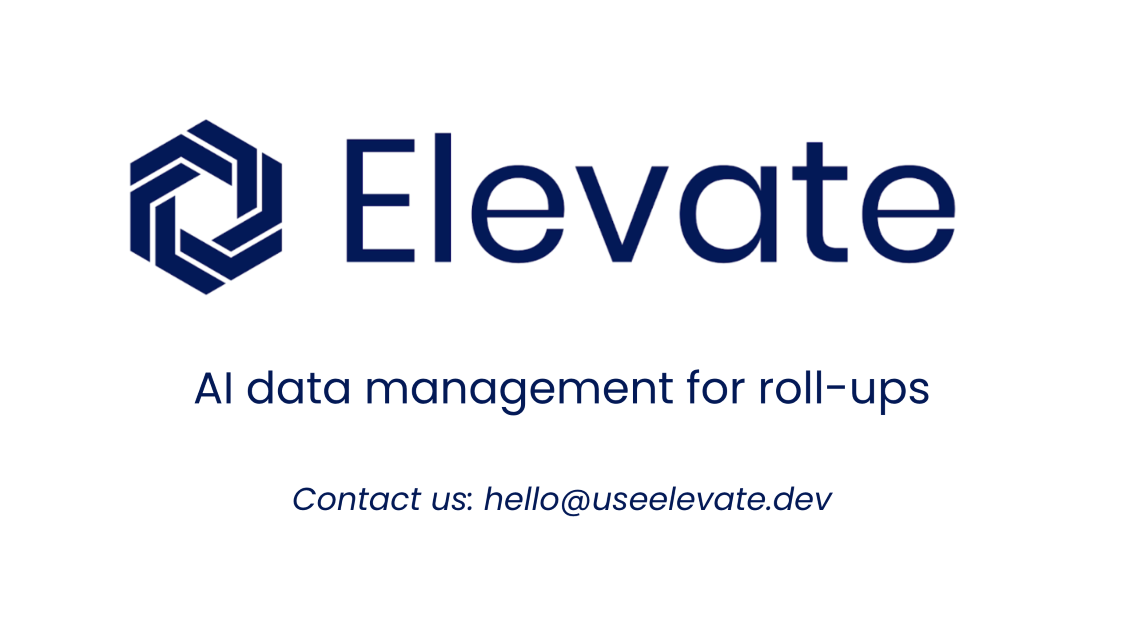Founder selling exit strategies can be one of the most complex and anxiety-inducing aspects of an entrepreneurial journey.
Founder selling exit strategies can be one of the most complex and anxiety-inducing aspects of an entrepreneurial journey. Many founders face the problem of not knowing when or how to exit their companies in a way that secures their legacy, meets their financial goals, and ensures the continued growth of their business. In this post, we will explore the concept of a founder selling exit, identify common challenges, and provide actionable solutions to help you execute a successful transition.
In the following sections, we dive deep into the nuances of founder selling exits, from the initial considerations to the final sale and beyond. Whether you are planning your exit or are already in negotiations, understanding the various aspects of a founder selling exit can help you navigate this critical phase with confidence and clarity.
Understanding Founder Exit Fundamentals
A founder selling exit refers to the process in which the original entrepreneur or co-founders sell their ownership stake or the entire company to another party. This move is often driven by multiple factors such as the pursuit of liquidity, the desire to explore new ventures, or strategic business shifts. Unlike other exit methods like mergers or acquisitions orchestrated by external parties, a founder selling exit is initiated by the founder's desire to cash out or reduce their involvement in the company.
Historically, the exit strategy was viewed as a secondary concern for founders, with the primary focus being on building and scaling the business. However, the modern landscape has shifted as financial pressures, market volatility, and personal considerations make the timing and execution of an exit increasingly critical. Today's entrepreneurs are advised to plan for their eventual departure from the business early on, treating it as an integral part of their business journey rather than an afterthought.
A founder selling exit is not solely about selling an asset; it is about planning a strategic handover that can safeguard the business's operational integrity, retain employee morale, and ultimately continue the company's mission. Thoughtful planning and timing are essential, as the wrong decision or poorly executed transition can lead to unfavorable outcomes that might tarnish years of hard work and dedication. The process requires both emotional intelligence and business acumen to navigate successfully.
Before diving into the details of the sale, it is important for founders to clearly articulate what they aim to achieve. Are you seeking immediate financial liquidity? Do you wish to step away entirely or maintain an advisory role? Identifying these goals is the first step in crafting a tailored strategy that aligns with your long-term vision and the future of the business you've built with passion and determination.
Common Exit Strategy Challenges
Embarking on a founder selling exit journey can present several challenges that might seem overwhelming at first glance. Understanding these obstacles is crucial for developing effective strategies to mitigate them and ensure a smoother transition process.
For many founders, their company is not just a business—it is an extension of their identity. The thought of selling or stepping away can trigger a range of emotions, from sadness to anxiety about losing control. This emotional attachment may cloud judgment during negotiations and decision-making, making it difficult to see the forest for the trees. The personal investment of time, energy, and creativity can make it challenging to view the business objectively as an asset to be sold.
Determining the true worth of your company can be one of the most challenging aspects of a founder selling exit. Market fluctuations, growth potential, and industry trends all play a significant role in valuation. Discrepancies in valuation expectations between founders and potential buyers can lead to prolonged negotiations and sometimes even deal breakdowns. The subjective nature of business valuation often leads to differing perspectives that must be reconciled through data-driven approaches.
The success of a founder selling exit heavily depends on market timing and conditions. Exiting during a downturn or in an oversaturated market can significantly reduce the sale price or complicate the process. External factors such as economic shifts, industry disruptions, or regulatory changes can impact the attractiveness of your business to potential buyers. Strategic patience becomes a valuable asset when navigating these market uncertainties.
Critical challenges that require professional guidance include:
- Emotional detachment from the business you've built from scratch
- Accurate business valuation that reflects true market worth
- Strategic timing that maximizes sale potential
- Legal complexities that protect your interests
- Negotiation dynamics that secure favorable terms
Strategic Exit Planning Essentials
A successful founder selling exit begins long before the actual sale is finalized. Strategic planning is key to ensuring that you maximize your returns while mitigating risks that could derail the process or diminish your company's value.
Invest time and resources in preparing your business for the sale by streamlining operations, ensuring robust financial reporting, and addressing any outstanding liabilities. A well-organized business is more attractive to prospective buyers and can command a better price in the marketplace. This preparation phase might take months or even years, but the investment pays dividends in the form of a smoother transaction and potentially higher valuation.
Develop a detailed exit roadmap that outlines key milestones, timelines, and responsibilities for all parties involved. This roadmap should cover every phase of the process, from initial valuation and marketing the company to final negotiations and the transfer of ownership. Having a structured approach reduces anxiety and provides clarity during what can be an emotionally charged process for many founders.
A founder selling exit is not a journey you should undertake alone, regardless of how self-sufficient you've been in building your business. Assemble a team of advisors—legal, financial, strategic, and operational—to guide you through the process. Their expertise can offer you insights into best practices and help you avoid common pitfalls that might otherwise cost you significantly in terms of time, money, and emotional well-being.
Essential components of business preparation include:
- Financial documentation that demonstrates consistent growth and profitability.
- Operational systems that function efficiently without founder involvement.
- Strong management team capable of leading through transition periods.
- Clear intellectual property protection that secures company assets.
- Customer relationships that will survive ownership changes.
Financial and Legal Considerations
The financial and legal dimensions of a founder selling exit are complex but critical for ensuring a smooth transition and securing favorable terms that protect your interests and legacy.
An accurate valuation is the cornerstone of a successful exit. Besides hiring professionals to conduct a thorough valuation, founders need to understand the financial models that underpin their business's value. Different valuation methods might yield different results, so understanding which approach best represents your company's worth is crucial. This knowledge empowers you during negotiations and helps set realistic expectations from the outset.
Legal due diligence is a critical step in the exit process that cannot be overlooked or rushed. Ensure that every aspect of your business—from intellectual property to customer contracts—is in impeccable order before entering negotiations. Potential buyers will scrutinize these elements carefully, and any irregularities can become negotiation leverage against you or even deal-breakers. Proactive legal preparation demonstrates professionalism and reduces the risk of post-sale disputes.
Understanding the tax implications of selling your business is paramount for financial planning. Different deal structures may have varied tax consequences, affecting the net proceeds you receive from the sale. Consulting with tax specialists who understand business sales can reveal strategies to optimize your financial outcome. The difference between an informed and uninformed approach to tax planning can sometimes amount to significant portions of your sale proceeds.
Key financial and legal elements to address include:
- Comprehensive financial audits that verify business performance
- Legal compliance reviews that identify potential liabilities
- Tax planning strategies that optimize sale proceeds
- Intellectual property audits that secure valuable assets
- Contract reviews that ensure transferability to new owners
Mastering Deal Negotiations
Negotiation is at the heart of any founder selling exit, and how you structure the deal can have long-term implications for both you and the new owners. Approaching this phase with preparation and strategy is essential for achieving your desired outcomes.
The key to successful negotiations is thorough preparation that leaves little to chance. Before engaging with potential buyers, ensure that you have a clear understanding of your bottom line, acceptable terms, and non-negotiable elements. This preparation includes knowing your company's true value, understanding market standards for similar deals, and having clarity about your post-exit goals. Armed with this knowledge, you can enter negotiations with confidence rather than uncertainty.
There are various ways to structure a founder selling exit deal, and the right structure depends on the specific circumstances and goals of the seller. Options range from clean breaks with upfront payments to complex arrangements involving earn-outs, continued involvement, or phased transitions. Each approach carries different implications for risk, reward, and your future relationship with the business. Understanding these options allows you to advocate for structures that align with your personal and financial objectives.
Negotiations can sometimes reach an impasse due to differing expectations or valuation perspectives. It is essential to remain patient and open to compromise without sacrificing your core objectives. Having predetermined walk-away points helps maintain objectivity when emotions run high. Remember that the best deals often result from finding creative solutions that address both parties' primary concerns rather than rigid positions.
Effective negotiation strategies that protect your interests:
- Establish clear boundaries for deal terms before entering discussions.
- Prepare responses to anticipated buyer concerns or objections.
- Consider multiple potential buyers to create negotiating leverage.
- Focus on value creation aspects that justify your asking price.
- Maintain emotional discipline throughout the negotiation process.
Ensuring Smooth Transitions
A founder selling exit is not just about closing a deal—it's about ensuring the ongoing success of the company and securing your future endeavors. The transition phase deserves as much attention as the sale itself.
For many founders, the ultimate aim is to leave the business in good hands that will respect and build upon their legacy. A well-planned transition ensures that the company continues to thrive after your exit, preserving your reputation and the value of any retained interests. This planning includes knowledge transfer, relationship introductions, and sometimes a formal transition period where you remain involved in a diminished capacity.
Employees are often overlooked in exit planning, yet they represent both a significant value driver and a potential risk factor. Clear communication about the transition, thoughtful retention strategies, and consideration of cultural impacts can make the difference between a smooth handover and a talent exodus. Remember that your team has contributed significantly to building the value you're now monetizing, and their continued engagement often influences the success of the transition.
After executing a founder selling exit, your personal future may involve new ventures, investments, or a well-deserved sabbatical. Reflect on the lessons learned and consider how this experience shapes your future endeavors. Many founders find themselves unprepared for the emotional and practical realities of life after exit. Planning for this next chapter is as important as planning the exit itself.
Transition elements that preserve business value:
- Comprehensive knowledge transfer plans for critical operations
- Customer relationship introductions that maintain business continuity
- Employee retention strategies that preserve institutional knowledge
- Clear communication protocols about ownership changes
- Defined founder involvement parameters during transition periods
Learning From Success Stories
Examining real-world examples can provide practical insights into the challenges and successes of founder selling exits. While every case is unique, common themes often emerge that can inform your own exit strategy.
Consider a tech startup founded by a group of innovators who built a platform with significant market disruption potential. Initially, the founders struggled with emotional attachment and were hesitant to step away from their creation. However, after meticulous planning and engaging with experienced advisors, they successfully executed a founder selling exit that allowed them to continue contributing in an advisory capacity while reaping the financial rewards of their success. Their experience highlights how early planning and emotional preparation can transform a potentially stressful process into a rewarding transition.
A founder of a mid-sized manufacturing firm decided that he wanted to retire and transition the company to a larger conglomerate after three decades of leadership. The challenges he faced included complex legal issues, concerns about the future of existing employees, and negotiating a deal that honored his legacy. By preparing the business thoroughly, engaging top-tier legal and financial advisors, and negotiating earn-out provisions, he was able to secure not only a favorable sale but also a commitment to his employees' continued well-being. His story demonstrates the importance of comprehensive preparation and value-aligned negotiations.
Family businesses present unique exit challenges that blend personal and professional considerations in complex ways. One successful family business transition involved a second-generation owner who recognized that neither his children nor key employees wished to take over the business. Rather than forcing an internal succession, he methodically prepared the business for external sale over a three-year period. This preparation included professionalizing operations, documenting processes, and gradually reducing his day-to-day involvement. The resulting sale exceeded valuation expectations and provided financial security while preserving the company's community reputation.
Key success patterns from founder exits include:
- Early exit planning integrated into business strategy
- Professional valuation and preparation processes
- Strong advisory teams with relevant experience
- Clear post-exit visions for personal fulfillment
- Balanced focus on financial and legacy considerations
Crafting Your Post-Exit Identity
The journey doesn't end when the papers are signed and the funds are transferred. Many founders struggle with their identity and purpose after exiting the business that defined them for years or even decades.
Successful post-exit transitions often involve intentional planning for your personal identity beyond the business. This might include exploring new interests, mentoring other entrepreneurs, engaging in philanthropy, or starting new ventures with the wisdom gained from your previous experience. The key is recognizing that your value as a person extends far beyond your identity as the founder of a particular company. This perspective shift takes time and sometimes professional support to fully embrace.
Financial management after a significant liquidity event presents both opportunities and challenges that require careful consideration. Sudden wealth can change relationships, create tax complexities, and demand new skills in investment management. Working with wealth advisors who understand entrepreneur psychology can help navigate these changes effectively. Remember that preserving and growing your exit proceeds requires different skills than building a business, and there's no shame in seeking expert guidance in this new domain.
Many founders find that their most fulfilling post-exit activities involve giving back to the entrepreneurial ecosystem through mentoring, angel investing, or supporting causes they care about. These activities leverage your hard-earned wisdom while creating new purpose and connection. They also provide structure and community during what can otherwise be a disorienting transition period as you redefine your daily routines and professional identity.
Post-exit fulfillment strategies to consider:
- Structured approach to exploring new interests and opportunities
- Intentional relationship maintenance with former business contacts
- Gradual transition into new activities rather than immediate commitments
- Professional support for identity transition challenges
- Balanced approach to wealth management and personal fulfillment
Plan Your Founder Exit Today
Embarking on a founder selling exit is a pivotal moment in every entrepreneur's journey. While the process is fraught with challenges ranging from emotional considerations and valuation uncertainties to legal hurdles and complex negotiations, it also represents a unique opportunity to secure financial rewards and pass the torch to capable new leadership.
Planning for a successful founder selling exit involves understanding the strategic importance of timing and preparation, gathering expert advice across multiple domains, executing a careful data-driven valuation, structuring deals that safeguard your interests, and ensuring a smooth transition that honors your legacy and the company's future. Each of these elements requires attention and expertise, but the investment pays dividends in both financial returns and peace of mind. Remember that the quality of your exit often reflects the quality of your preparation.
For entrepreneurs contemplating this challenging yet potentially rewarding transition, remember that a successful exit is as much about planning for the future as it is about bidding farewell to the venture you built. Whether you decide to maintain an advisory role or seek complete separation, laying a strong foundation through strategic planning and the right support team can pave the way for an exit that not only meets your financial and personal objectives but also positions the company for continued success under new leadership.
Begin your exit planning journey today by taking one simple step: schedule time to reflect on your ideal exit timeline and outcomes. This quiet contemplation can spark the clarity needed to initiate more formal planning processes. Remember that the most successful exits often begin years before the actual transaction, giving you ample time to optimize your business, address potential obstacles, and align your personal and professional goals for this significant transition.
Simplify Startup Finances Today
Take the stress out of bookkeeping, taxes, and tax credits with Fondo’s all-in-one accounting platform built for startups. Start saving time and money with our expert-backed solutions.
Get Started









.png)









